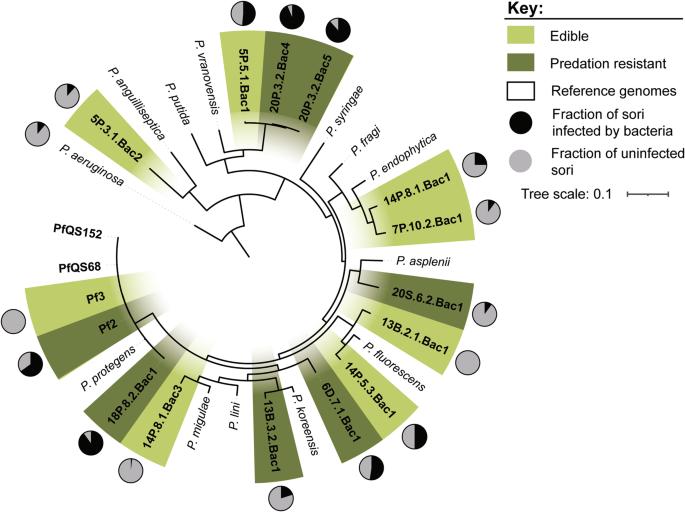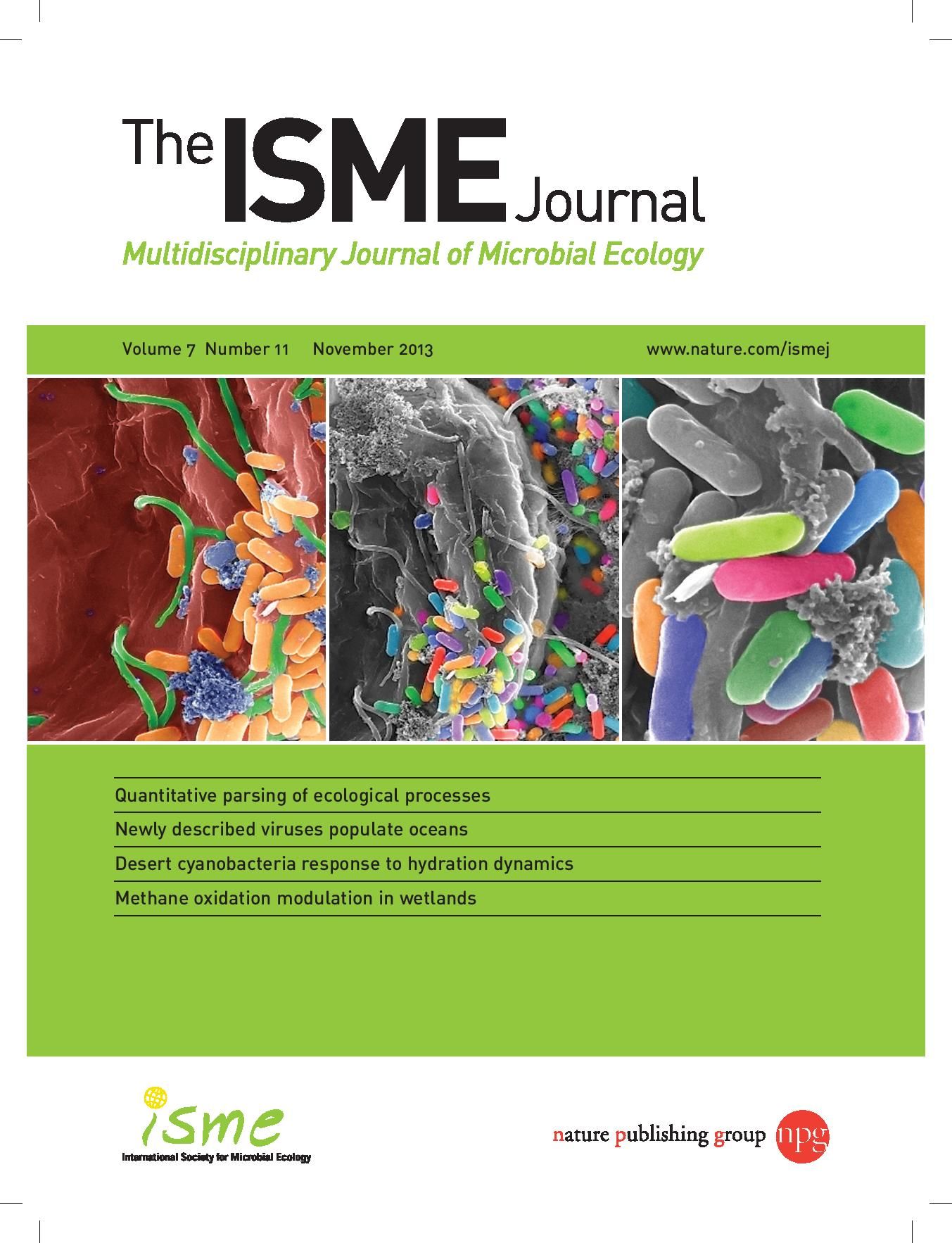具有捕食抗性的假单胞菌和盘基网柄变形虫有类似共生体的行为。
IF 10
1区 环境科学与生态学
Q1 ECOLOGY
引用次数: 0
摘要
盘基盘基网柄菌是多种细菌的捕食者和潜在宿主。我们测试了从短暂感染的野生盘状芽孢杆菌中分离出的15株假单胞菌是否有能力逃脱捕食并感染盘状芽孢菌子实体。三种耐捕食菌株经常引起子实体的细胞外感染,但在孢子中没有发现。此外,这些物种中的一种感染会引发二次感染,并抑制对其他可食用细菌的捕食。另一种菌株在被吞噬后可以在变形虫体内持续存在,但很少被吸收。我们对分离株的基因组进行了测序,发现具有捕食抗性的分离株不是单系的。许多假单胞菌分离株编码分泌系统和毒素,已知这些系统和毒素可以提高其他物种对吞噬作用的抵抗力,以及可能有助于抵抗捕食的各种次级代谢产物生物合成基因簇。然而,仅凭这些基因的分布并不能解释为什么有些菌株是可食用的,而另一些则不是。每个谱系都可能采用一种独特的抵抗机制。本文章由计算机程序翻译,如有差异,请以英文原文为准。

Predation-resistant Pseudomonas bacteria engage in symbiont-like behavior with the social amoeba Dictyostelium discoideum
The soil amoeba Dictyostelium discoideum acts as both a predator and potential host for diverse bacteria. We tested fifteen Pseudomonas strains that were isolated from transiently infected wild D. discoideum for ability to escape predation and infect D. discoideum fruiting bodies. Three predation-resistant strains frequently caused extracellular infections of fruiting bodies but were not found within spores. Furthermore, infection by one of these species induces secondary infections and suppresses predation of otherwise edible bacteria. Another strain can persist inside of amoebae after being phagocytosed but is rarely taken up. We sequenced isolate genomes and discovered that predation-resistant isolates are not monophyletic. Many Pseudomonas isolates encode secretion systems and toxins known to improve resistance to phagocytosis in other species, as well as diverse secondary metabolite biosynthetic gene clusters that may contribute to predation resistance. However, the distribution of these genes alone cannot explain why some strains are edible and others are not. Each lineage may employ a unique mechanism for resistance.
求助全文
通过发布文献求助,成功后即可免费获取论文全文。
去求助
来源期刊

ISME Journal
环境科学-生态学
CiteScore
22.10
自引率
2.70%
发文量
171
审稿时长
2.6 months
期刊介绍:
The ISME Journal covers the diverse and integrated areas of microbial ecology. We encourage contributions that represent major advances for the study of microbial ecosystems, communities, and interactions of microorganisms in the environment. Articles in The ISME Journal describe pioneering discoveries of wide appeal that enhance our understanding of functional and mechanistic relationships among microorganisms, their communities, and their habitats.
 求助内容:
求助内容: 应助结果提醒方式:
应助结果提醒方式:


